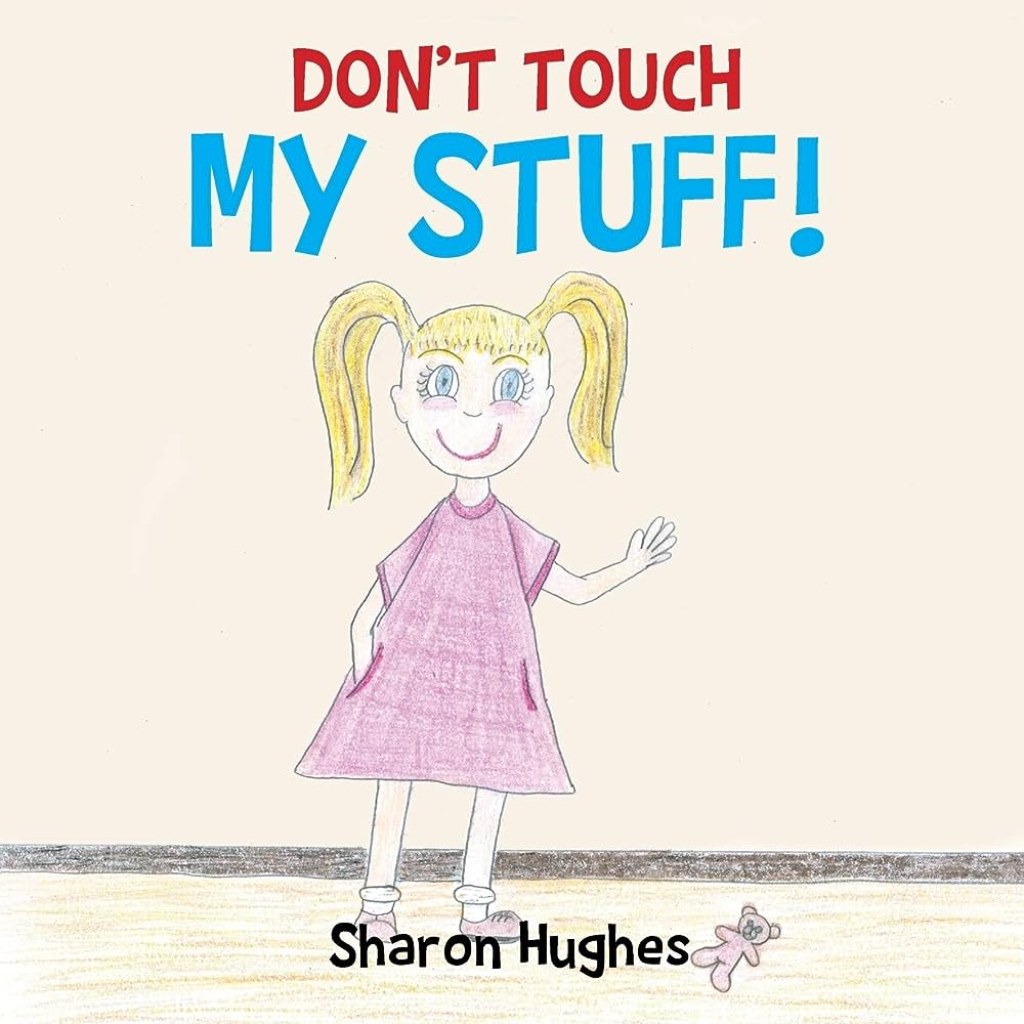Hands Off! Protect Your Territory: Don’t Touch My Stuff!
Don’t Touch My Stuff: Protecting Your Belongings with Style
Introduction
Welcome, Creative Peoples! Are you tired of people touching your stuff without permission? We all have belongings that hold sentimental value or are simply important to us. It can be frustrating and invasive when others disregard our personal boundaries. In this article, we will explore the concept of Don’t Touch My Stuff and discuss effective ways to protect your belongings. So, let’s dive in and discover how you can safeguard your possessions with style and grace.
1 Picture Gallery: Hands Off! Protect Your Territory: Don’t Touch My Stuff!

What is Don’t Touch My Stuff?
🔑 Have you ever found yourself saying, Don’t touch my stuff! to someone who invades your personal space? This phrase has become a popular expression used to establish boundaries and protect our belongings. It signifies the importance of respecting personal property and emphasizes the need for consent before handling someone else’s possessions. Don’t Touch My Stuff is not just a phrase; it’s a powerful message that asserts our right to privacy.
Who Does Don’t Touch My Stuff Apply To?

Image Source: media-amazon.com
🤝 Don’t Touch My Stuff applies to everyone, regardless of age, occupation, or social status. Whether you are a student, a professional, or a homemaker, your belongings deserve to be respected. This concept teaches us to value and preserve our personal space, encouraging others to do the same. By establishing boundaries and asserting our rights, we create a society that respects individual privacy and property.
When Should You Assert Your Don’t Touch My Stuff Rights?
⌛ The need to assert your Don’t Touch My Stuff rights arises in various situations. It could be at home, where you want to protect your personal belongings from family members or guests. It could also be at work, where you want to ensure the safety of your workspace and personal items. Additionally, when traveling or using shared spaces, asserting these rights becomes crucial to safeguard your belongings from potential theft or damage. Remember, it’s never too late to start asserting your right to protect your stuff.
Where Can You Apply Don’t Touch My Stuff?
🏠 Don’t Touch My Stuff applies to both private and public spaces. At home, you can assert your rights by setting clear boundaries with family members and friends. In public spaces such as libraries, cafes, or parks, it’s important to be mindful of your belongings and take necessary precautions. By applying Don’t Touch My Stuff principles wherever you go, you create a safe and secure environment that respects individual property.
Why Is It Important to Protect Your Belongings?
🔒 Protecting your belongings is essential for several reasons. Firstly, it ensures that your personal items remain safe and intact, preventing loss or damage. Secondly, asserting your Don’t Touch My Stuff rights promotes a sense of autonomy and reinforces personal boundaries. Lastly, preserving your belongings gives you peace of mind and allows you to focus on other aspects of your life without constantly worrying about their safety. Remember, your possessions hold value, and it’s crucial to protect them.
How Can You Protect Your Belongings?
🛡️ Protecting your belongings can be done in various ways. Start by clearly communicating your boundaries to those around you. Use labels, signs, or verbal communication to express that your stuff is off-limits. Additionally, investing in lockable storage solutions, such as lockers or safes, adds an extra layer of protection. Consider using innovative gadgets like smart trackers or security cameras to deter potential intruders. By combining style and functionality, you can effectively safeguard your belongings while maintaining a sophisticated aesthetic.
Advantages and Disadvantages of Asserting Don’t Touch My Stuff Rights
👍 Asserting your Don’t Touch My Stuff rights offers several advantages. It establishes your personal boundaries, ensuring that your belongings are respected. It also promotes a sense of ownership and autonomy, empowering you to take control of your space. However, it’s important to acknowledge the potential disadvantages as well. Asserting these rights may strain relationships or create tension if not communicated effectively. Finding a balance between protecting your stuff and maintaining harmonious connections is key.
Frequently Asked Questions (FAQ)
1. Can I assert my Don’t Touch My Stuff rights without appearing rude?
Yes, absolutely! Asserting your rights does not mean being rude. Communicate your boundaries in a polite and respectful manner, explaining the importance of your belongings to you. By demonstrating understanding and empathy, you can effectively convey your message without offending others.
2. What if someone accidentally touches my stuff?
Mistakes happen, and it’s important to approach such situations with empathy. Politely inform the person that their action made you uncomfortable and kindly request them to be mindful of your belongings in the future. Most people will appreciate your honesty and make an effort to respect your boundaries.
3. How can I protect my belongings in public spaces?
In public spaces, always keep your belongings within sight and use secure storage options whenever possible. Avoid leaving your belongings unattended, and if necessary, consider using anti-theft devices or bags with built-in security features. Being vigilant and proactive will significantly reduce the chances of theft or damage.
4. Should I assert my rights even with close friends or family members?
Yes, even with close friends or family members, it is important to assert your rights. While they may have good intentions, it’s crucial to establish boundaries to ensure mutual respect. Communicate openly about your concerns and the importance of your belongings, fostering a healthy understanding of personal space and privacy.
5. Can I involve authorities if someone repeatedly violates my boundaries?
If someone consistently disregards your boundaries despite your efforts to communicate them, involving authorities may be necessary. Notify the appropriate authorities or seek legal advice to address the situation and protect your rights.
Conclusion
In conclusion, Creative Peoples, asserting your Don’t Touch My Stuff rights is crucial for maintaining personal privacy and protecting your belongings. By clearly communicating your boundaries, using innovative security measures, and fostering mutual respect, you can create a safe and secure environment. Remember, your belongings hold value, and it’s essential to prioritize their protection. So, let’s stand up for our personal boundaries and embrace the power of Don’t Touch My Stuff!
Final Remarks
📢 The information provided in this article is intended for informational purposes only. While asserting your Don’t Touch My Stuff rights is important, it’s crucial to approach these situations with empathy and understanding. Every individual and scenario is unique, and finding the right balance between protecting your belongings and maintaining harmonious relationships is key. Always consider the specific circumstances and adapt the strategies mentioned in this article accordingly. Stay vigilant, stay respectful, and remember, your stuff deserves to be protected!
This post topic: Stuff


